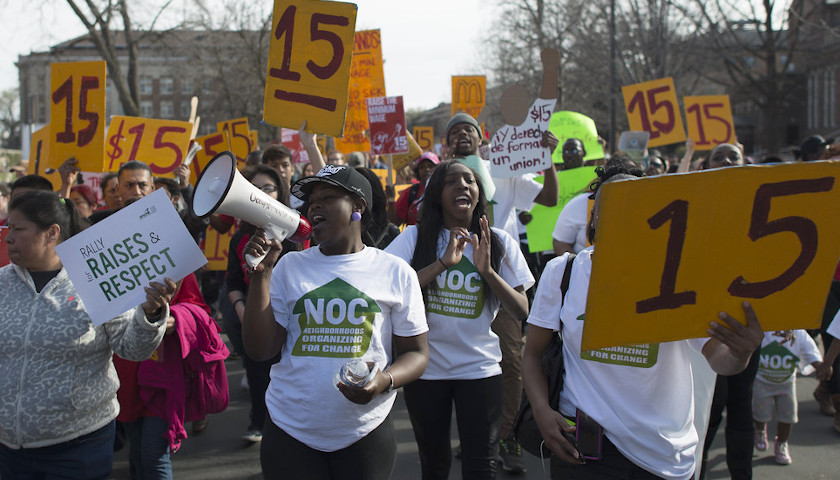The Tucson City Clerk approved the signatures for a petition to adopt a $15 minimum wage citywide, meaning it will be placed on this November’s ballot. If approved by voters, the minimum wage would increase incrementally for the next four years, starting in April of next year. The minimum wage would first increase to $13 next year, $13.50 by January 2023, and $14.25 by January 2024. That means the $15 minimum wage would be established in January 2025.
The city clerk’s office verified with The Arizona Sun Times that they certified the petition on Thursday, called “The Tucson Minimum Wage Act.” The petition needed over 14,800 signatures; the campaign reportedly gathered over 25,000 signatures. The campaign, Tucson Fight for $15, submitted the signatures at the beginning of this month.
The co-author and co-organizer of the campaign behind the petition, Billy Peard, said that this change was necessary to match income with the city’s living costs.
“Tucson has one of the fastest-growing rents and housing costs in the country. Tucson is the second-poorest city in the southwestern United States, as measured by per capita income,” said Peard. “There’s simply no way that a family, or even an individual without children, can pay a one-bedroom apartment these days on the current minimum wage of $12.15.”
Supporters of the initiative are Democratic leaders that range from the local to the national level. They include: State Representatives Andrés Cano (D-Tucson), Andrea Dalessandro (D-Green Valley), Domingo DeGrazia (D-Tucson), Dr. Randy Friese (D-Tucson), and Stephanie Stahl Hamilton (D-Tucson); State Senators Rosanna Gabaldon (D-Green Valley) and Victoria Steele (D-Tucson); and State Representative Raul Grijalva (D-AZ-03).
On Friday, the Tucson Metro Chamber voiced its opposition to the minimum wage increase. The chamber’s president and CEO, Amber Smith, said that the proposed minimum wage increase threatened businesses already struggling post-pandemic.
“Small businesses are collectively major employers with tight profit margins. Coming off a devastating pandemic that forced many non-essential businesses to close their doors or scale back their operations, this Act would create another hurdle that many employers and service providers couldn’t overcome,” stated Smith. “This Act won’t pull anyone out of poverty, but it could put plenty of employers out of business.”
The chamber urged voters to oppose the act.
– – –
Corinne Murdock is a reporter at The Arizona Sun Times and the Star News Network. Follow her latest on Twitter, or email tips to [email protected].
Photo “Minimum Wage Protest” by Fibonacci Blue. CC BY 2.0.








